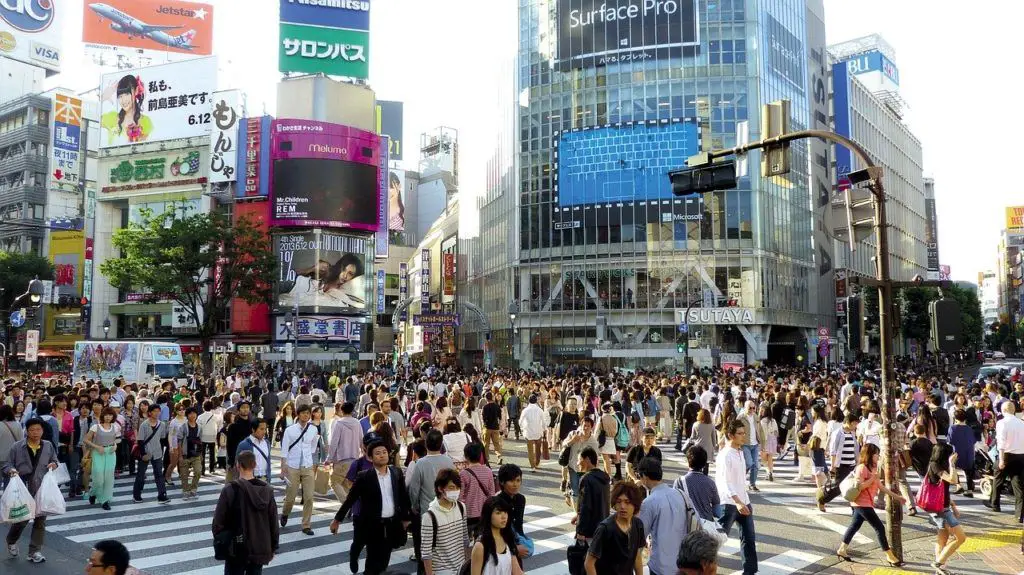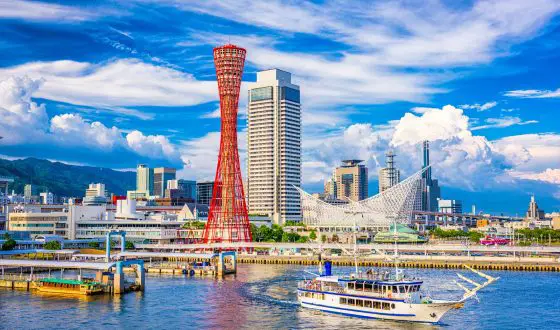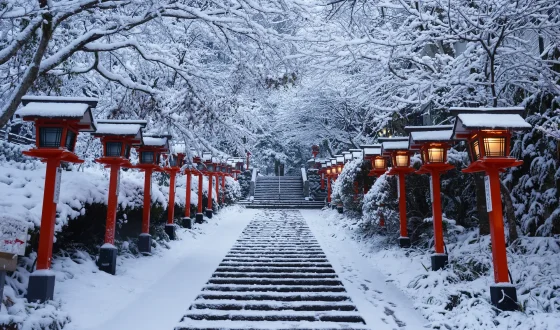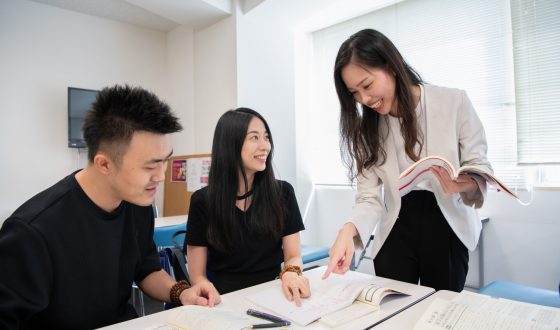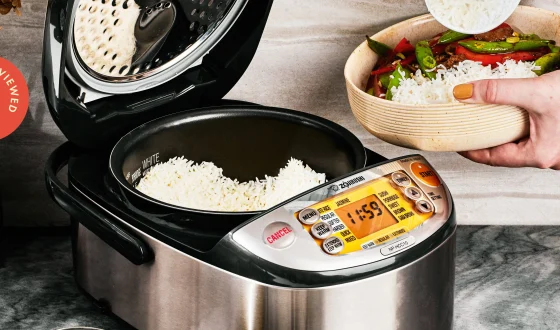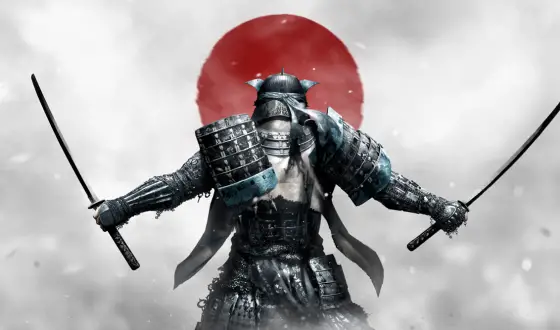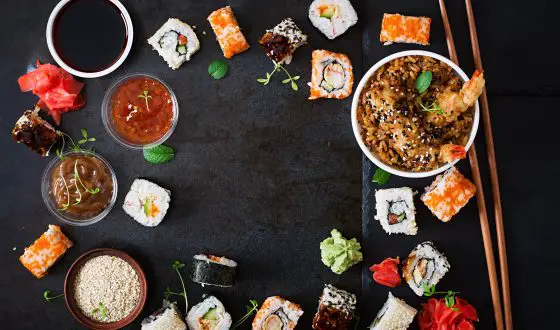Is It Safe to Travel to Japan?
Japan is a unique and fascinating destination that attracts millions of visitors from all over the world each year. With its rich culture, beautiful landscapes, and advanced technology, Japan has something to offer every type of traveler.
However, like with any travel destination, safety concerns are always a top priority for tourists. In this article, we’ll explore the question “Is it safe to travel to Japan?” by examining the current safety situation in the country, potential risks travelers should be aware of, and tips on how to stay safe during your trip.
Whether you’re planning your first trip to Japan or are a seasoned traveler to the country, this article will provide you with the information you need to make informed decisions about your safety while traveling in Japan.
Is It Safe to Travel to Japan? How Safe is Japan?
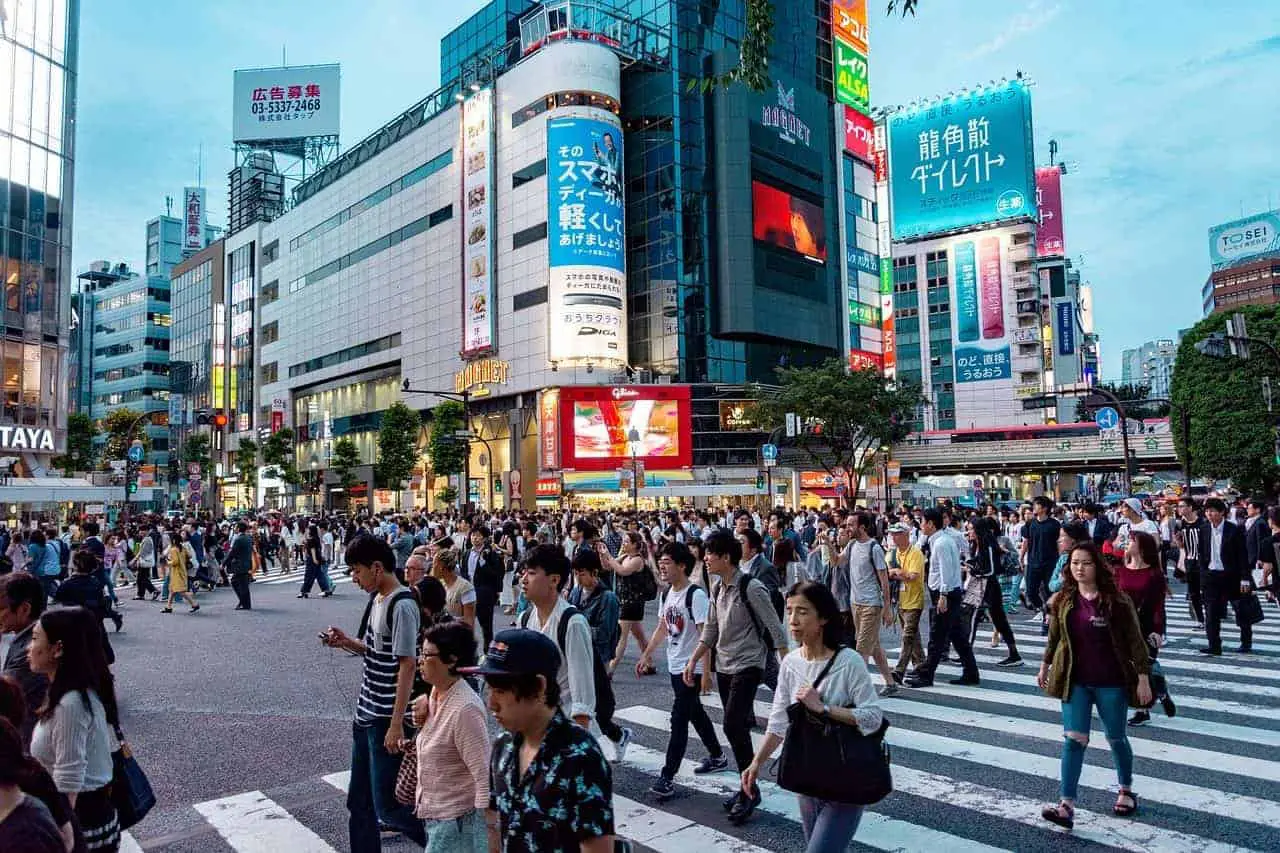
How safe is Japan? (Source: Internet)
Terrorism
Terrorism poses a global threat that affects nations across the world. To safeguard its citizens, Japan has implemented enhanced security protocols at critical locations, including:
- Public transportation systems: Stringent security measures have been implemented to ensure the safety of passengers using various modes of public transportation.
- Public event venues: To mitigate the risks associated with potential terrorist activities, Japan has bolstered security measures at public event venues, ensuring the safety and well-being of attendees.
- Entry ports: Japan has implemented heightened security measures at entry ports, such as airports and seaports, to prevent any unauthorized individuals or dangerous materials from entering the country.
Regional Threats
The security situation in the region, particularly concerning North Korea, has the potential to deteriorate unexpectedly, leading to increased tensions. Missile tests conducted by North Korea can trigger such tensions, which may directly impact Japan.
The Japanese Government has officially acknowledged a rise in missile launch activities directed toward Japan by North Korea. Consequently, there have been instances where ‘take shelter’ alerts were issued for specific areas in Japan.
To ensure personal safety, it is crucial to:
- Stay vigilant and remain aware of any developments or changes in the situation.
- Refer to the Civil Protection Portal Site advice provided by the Japanese Cabinet Secretariat for National Security Affairs and Crisis Management. This platform offers valuable information and guidance related to civil protection during emergencies.
- Follow the instructions and guidance provided by local authorities, who are equipped to handle crises effectively.
- Stay updated with the latest information by checking NHK World, a reliable news source, for real-time updates and relevant news regarding the situation.
Crime
Japan maintains a generally low crime rate; however, occasional incidents of petty theft, such as bag snatching, can occur at popular tourist attractions.
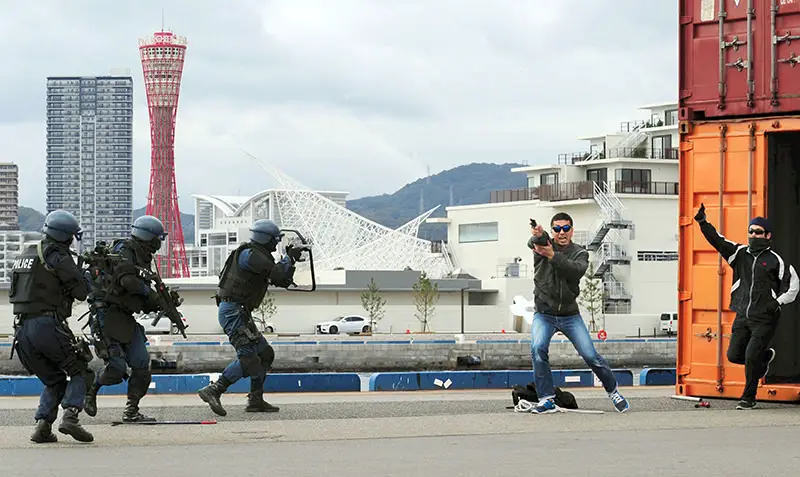
In this Thursday, Nov. 19, 2015 photo, riot police of Hyogo Prefectural Police, left, take positions against “armed terrorists” performed by police officers during an anti-terror drill at a port in Kobe, western Japan. Japan is preparing to launch an anti-terrorism intelligence unit next week as the country gears up for the 2020 Tokyo Olympics. The special unit will be set up within the Foreign Ministry, Chief Cabinet Secretary Yoshihide Suga said Friday, Dec. 4, 2015. (Ryutaro Hara/Kyodo News via AP) JAPAN OUT, CREDIT MANDATORY
It is important to note that there is a potential risk of crime in certain areas, particularly in the entertainment districts of Roppongi and Shinjuku (Kabuki-cho) in Tokyo. When visiting bars and nightclubs in these areas, it is essential to be cautious as you may become a target for various illicit activities, including:
- Overcharging
- Fraudulent credit card charges
- Drink spiking
- Illegal drugs
- Assault
Drinks with a higher alcohol content than usual might be served to you. Some victims have awoken in strange locations to find significant credit card charges. Other victims have been forced to withdraw a significant amount of cash from ATMs while impaired by drink-sprinkling.
It might be challenging in these circumstances to obtain a police report for your bank and travel insurance.
To be secure:
- Avoid trying to enter venues with street touts
- Never leave a drink unattended, and exercise caution when accepting drinks from new people.
- Avoid carrying a lot of cash to events, bars, clubs, or entertainment areas, and use credit cards responsibly.
Mountain climbing and trekking
Engaging in trekking and mountaineering activities can present inherent dangers and risks. Each year, a significant number of individuals lose their lives while attempting to climb Mount Fuji.
Japanese Emergency Services strongly advise against climbing Mount Fuji between September and June, as this period is considered the most hazardous.
If you are planning to participate in extreme activities like mountain climbing, it is crucial to review your travel insurance policy and ensure that it provides adequate coverage for such endeavors.
In certain regions of northern Japan, bear sightings have been reported. Therefore, if you intend to trek in the Japanese Alps or other wilderness areas:
- Familiarize yourself with and carefully read the local safety advice provided by authorities or experienced guides.
- Pay close attention to warning notices and signs displayed along hiking trails. These notices are in place to alert and guide trekkers about potential risks and necessary precautions.
Snowsport safety
In most of Japan, snowboarding and backcountry skiing are dangerous activities. You ought to confine yourself to the ski resort’s perimeter.
Many travelers have experienced severe head injuries that could have been avoided if the proper gear had been worn.
Verify whether you have snow sports coverage under your insurance policy.
Each ski region’s regulations are set by nearby ski resorts. For acting out, you may be taken into custody and arrested.
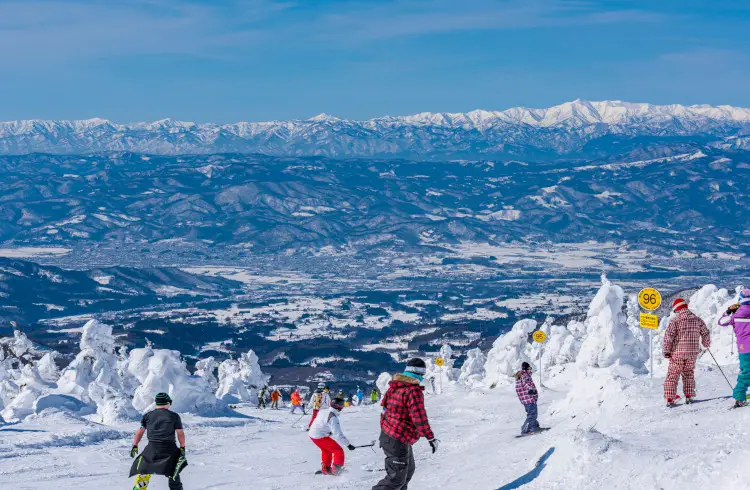
Backcountry skiing and snowboarding are risky sports in the majority of Japan. (Source: Internet)
If you plan to ski in Japan:
- Utilize a helmet and safety equipment
- Consult your hotel, a local tourism office, or the nearby ski resort for information on local laws and weather forecasts.
- Follow the regulations in your local ski area.
- Only go to areas that the local government has designated as safe.
- Understand the benefits of your travel insurance.
You can also like:
- What is Tokyo Known For? Discover the 10 Best Things Tokyo Famous For
- Japanese Sauna Culture – Why Saunas Are So Popular in Japan
- Types Of Japanese Swords – A Way To Japanese Art Culture
Health
In Japan, COVID-19 is still a concern. Some areas of Japan’s health authorities may still advise isolation. In Japan, wearing a face mask is an individual preference. Mask use is still common, though. Keep a close eye on your health and heed local authorities’ recommendations.
You can get assistance from the Ministry of Health, Labour, and Welfare call centers (toll-free) if you test positive while you’re there and need guidance in English.
Japan has stringent regulations regarding the importation of medicine, including some of the ingredients in ADHD and cold and flu remedies. Before you travel, confirm that it’s legal to bring in any medications you intend to bring. For more details, consult the Ministry of Health, Labour, and Welfare.
Around the Fukushima Dai-ichi nuclear power plant, there are restricted areas. Lethal radiation was released as a result of the earthquake in 2011. Tokyo and the majority of Japan’s other cities have radiation levels that are within the normal range.
High-quality medical facilities are available. In most major cities, you can find medical personnel who speak English. Before receiving care, you might need to make a payment.
Laws and culture
It is necessary to carry your passport (or Japanese residency card) with you at all times.
Engaging in the use or possession of illegal drugs is strictly prohibited. If authorities discover even trace amounts of illegal drugs in your blood or urine, you can face charges.
Japanese family law differs significantly from Australian law, particularly in matters of divorce and child custody. For instance, joint custody of a child after divorce is not legally recognized, and non-custodial parents may have limited access. In Japanese Family Courts, the child’s best interests often revolve around their “usual place of residence,” leading to sole custody being granted to the parent who has most recently taken care of the child.
If you are involved in custody or family disputes, it is crucial to seek legal advice regarding your options in both Japan and Australia. We have provided general information on topics concerning custody, child abduction, and parental rights.
Beware of employment agents who may mislead and encourage foreigners to work in Japan without the appropriate paperwork. If you intend to work in Japan, ensure that the job offer is verified and obtain the correct visa. It is advisable to seek legal advice before signing any employment contracts.
Japan maintains strict alcohol laws, including a legal drinking age of 20. It is illegal to operate a vehicle with any alcohol in your bloodstream, and enabling someone who has been drinking to drive is also against the law.
Specific areas on certain days, such as Shibuya on Halloween night (31 October) and New Year’s Eve, have alcohol consumption restrictions. Additionally, smoking on the street is illegal in Tokyo and some other cities.
Risk level in Japan
In Japan, exercise standard security precautions:
1. Take the usual safety precautions
Take the same safety precautions you would in Canada.
2. Extreme caution should be exercised
There are some issues with safety and security, or things could change very quickly. Always exercise extreme caution, keep an eye on local media, and heed local authorities’ instructions.
Important: The Government of Canada issues the two levels of travel advisories listed below when there is a potential threat to the safety and security of Canadians visiting or residing in the destination nation or region.
3. Avoid unnecessary travel.
Your security and safety could be in jeopardy. You should consider your need to visit this nation, territory, or area in light of your family or professional obligations, your knowledge of or familiarity with the area, and other variables.
Consider whether you need to be there if you are already there. You should consider leaving if you do not need to be there.
4. Don’t go anywhere.
You shouldn’t visit this nation, territory, or area. Your security and safety are in grave danger. If it is safe to do so, you should consider leaving if you are already there.
How does Japan compare?
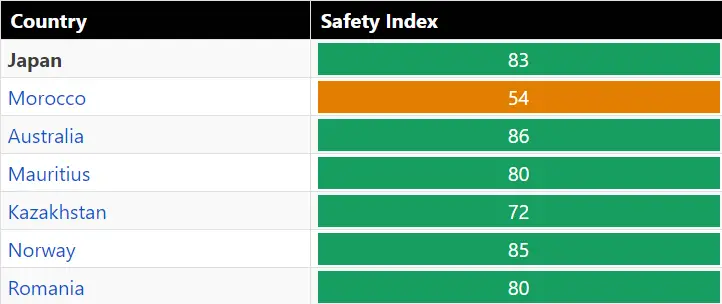
Assessment of the safety level of some countries. (Source: Internet)
Tips for staying safe in Japan
Certainly! Here are some tips for staying safe while in Japan:
- Stay vigilant: Keep an eye on your surroundings and be aware of your belongings, particularly in crowded areas and tourist spots where pickpocketing may occur.
- Carry identification: Carry your passport (or Japanese residency card) with you at all times. It serves as your legal identification in case you need to present it to authorities.
- Follow local laws and customs: Familiarize yourself with the laws and customs of Japan to ensure you do not unintentionally violate any regulations. Respect local traditions and etiquette, such as removing your shoes when entering certain establishments or refraining from eating or drinking while walking.
- Use reputable transportation services: Stick to well-known and licensed transportation options, such as official taxis or recognized rideshare services. Avoid unlicensed or unmarked vehicles.
- Stay updated on travel advisories: Check for any travel advisories or alerts issued by your country’s embassy or consulate in Japan. Stay informed about any potential risks or safety concerns in the areas you plan to visit.
- Practice caution with alcohol: Japan has strict alcohol laws, including a legal drinking age of 20. Drink responsibly and be mindful of your alcohol consumption. Avoid driving under the influence, as it is illegal and dangerous.
- Take care in nightlife areas: Exercise caution when visiting nightlife districts, such as Roppongi and Shinjuku (Kabuki-cho) in Tokyo. Be aware of your surroundings, and if you choose to drink, do so responsibly.
- Respect local customs in religious sites: When visiting temples, shrines, or other religious sites, adhere to the rules and customs, such as removing your shoes, covering your shoulders, and refraining from photography where prohibited.
- Use reputable accommodation: Book accommodations from reputable sources and establishments to ensure a safe and reliable stay. Read reviews and consider the location and security measures provided by the accommodation.
- Emergency contact information: Familiarize yourself with emergency contact numbers in Japan, including the police (110) and ambulance (119) services.
FAQs
1. Is it safe to visit Japan given the radiation there?
Simply follow the Australian, British, and American governments’ advice and avoid traveling within 12 miles (20 kilometers) of Fukushima if radiation is a particular concern.
2. Is Japan welcoming to tourists?
Everyone is very helpful and as respectful as they can be. You can always find someone to help you out if you have a question or seem to be confused about something. Even though the language barrier can be challenging at times, Japanese people are always willing to assist you.
3. Tokyo at night: Is it safe to walk?
Yes, is the quick response. Tokyo is generally a safe city to explore, even very late at night. Tokyo is among the safest cities in the world for a reason; in Tokyo, missing the last train is usually more of a concern than being mugged.
4. What dangers exist in Japan for visitors?
Seismic activity and tsunamis are a constant threat. For information on earthquakes and tsunamis, contact the Japan Meteorological Agency. Understand the risks associated with a significant earthquake as well as the details of your region’s emergency plan. find out where the nearest shelter is.
5. Where in Tokyo is the safest place to be?
Top 3 Tokyo Neighborhoods with Fewest Violent Crimes. Places one and two are Ota and Minato Ward, which are represented by Haneda Airport and Odaiba, respectively, and the Tokyo Bay area. Even though they occasionally become crowded with people, these are sparsely populated areas with few violent crimes.
6. Is Tokyo the world’s safest nation?
Japan consistently ranks among the top ten most peaceful nations due to the lack of violent crime, and its murder rate of 0.25 per 100,000 people is among the lowest in the world. In contrast, there were 6.52 murders per 100,000 people in the US in 2020.
7. Is it safe to travel alone in Osaka?
You will undoubtedly enjoy yourself if you travel with an open mind. There is no need to be concerned if you are wondering “Is it safe to travel to Osaka, Japan alone?” Osaka is typically a very safe city, so a solo trip there can be worry-free.
8. Kyoto or Tokyo, which is the superior city?
Tokyo is much more crowded, new, and modern because it is Japan’s political and economic center. On the other hand, Kyoto is where Japan’s traditional culture is kept. Therefore, go to Tokyo if you want to understand what Japan is like today.
9. Singapore is more secure than Tokyo?
According to the EIU Safe Cities Index, Singapore is the second-safest city in the world after Tokyo. SG – Singapore In the most recent iteration of the Economist Intelligence Unit’s (EIU) Safe Cities Index (SCI), Singapore has maintained its position as the second-safest city in the world, after Tokyo.
10. Is English a common language in Tokyo?
You can get by in Japan without knowing Japanese because English is widely spoken, and Chinese and Korean are also becoming more popular. The places where foreign tourists are most prevalent are the large cities. However, the use of foreign languages will quickly decline as you venture outside of the cities.
Conclusion
Traveling to Japan can generally be considered safe; however, it is important to exercise caution and take necessary precautions, as with any travel destination.
By staying informed, taking necessary precautions, and being mindful of your surroundings, you can enjoy a safe and memorable trip to Japan. Hopefully, this article has helped you answer the question ”Is It Safe to Travel to Japan”.

